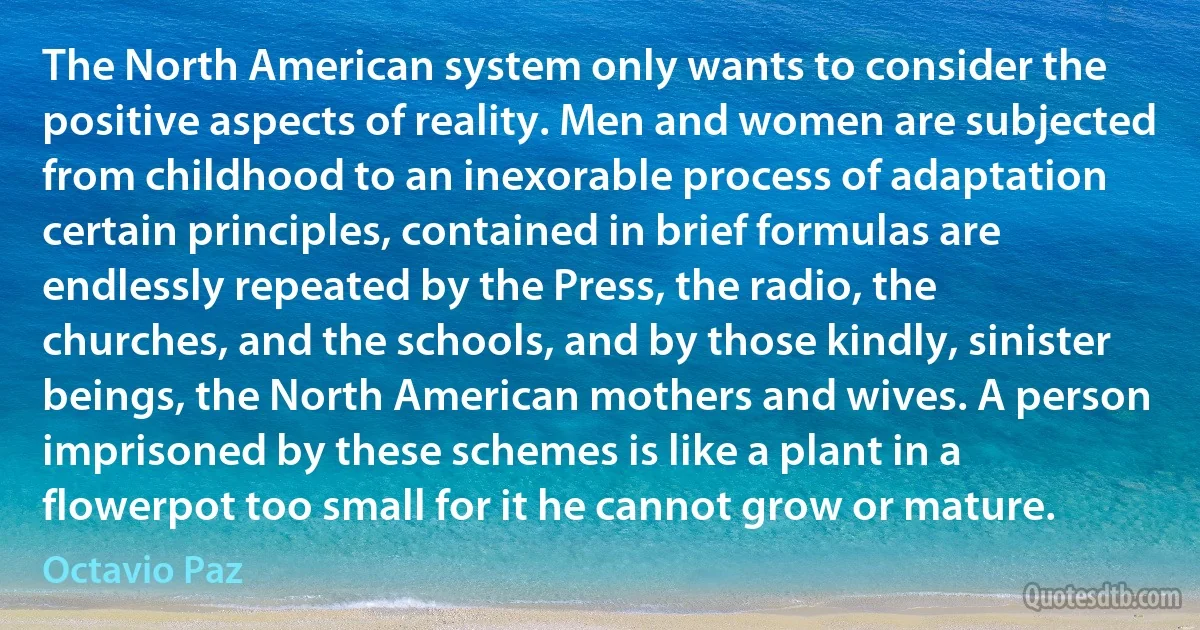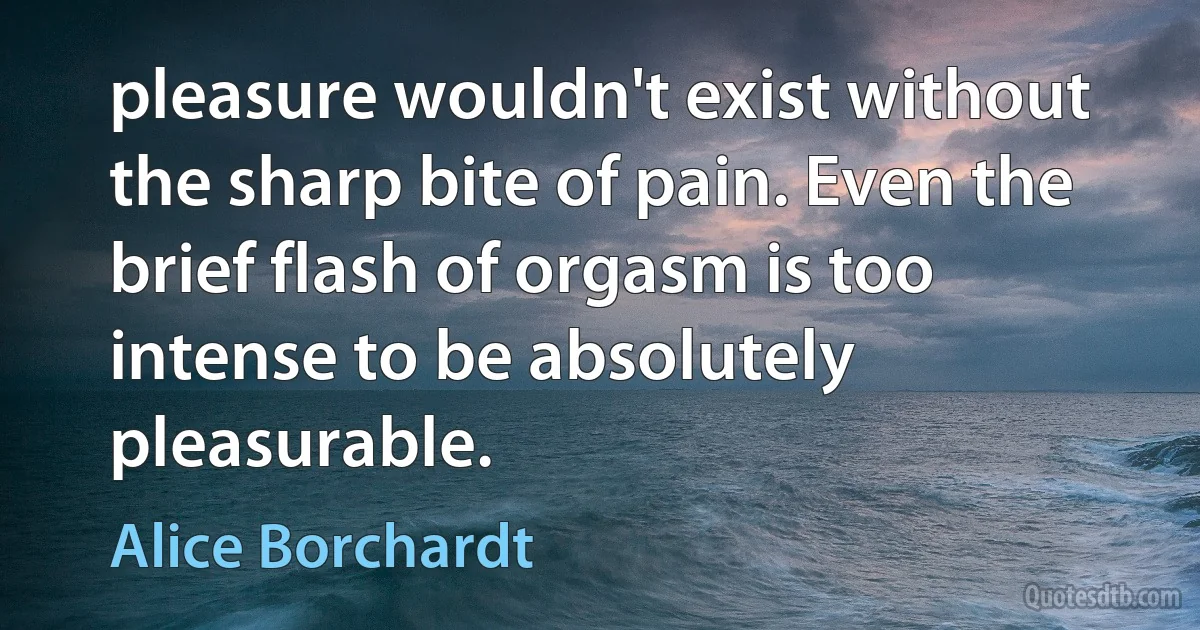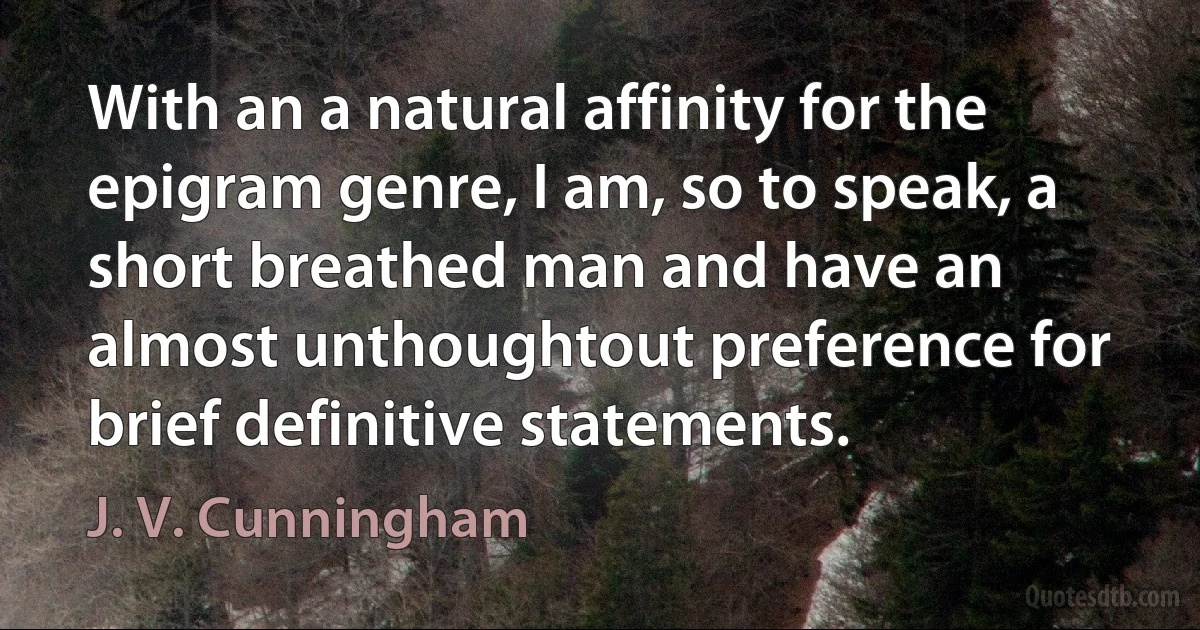Brief Quotes - page 19
A universe without purpose should neither depress us nor suggest that our lives are purposeless. Through an awe-inspiring cosmic history we find ourselves on this remote planet in a remote corner of the universe, endowed with intelligence and self-awareness. We should not despair, but should humbly rejoice in making the most of these gifts, and celebrate our brief moment in the sun.

Lawrence M. Krauss
‘... I sensed that Park Street is, essentially (even for the destitute), a place of brief acquaintances and meetings no one has too much time for anyone else, you yourself are part of a web of motivations that are fading and resurrecting – and you must be on the move constantly to be in the street's ebb and flow of traffic.'

Amit Chaudhuri
Each of us has only this one brief experience with the bright light of consciousness in that endless dark night of eternity and must make the most of it. Doing this means we must respect the existence of everyone else and the most criminal act imaginable is the terminating of one of these conscious existences.

Harry Harrison (writer)
Now I know surely and forever,
However much I have blotted our
Waking love, its memory is still
there. And I know the web, the net,
The blind and crippled bird. For then, for
One brief instant it was not blind, nor
Trapped, not crippled. For one heart beat the
Heart was free and moved itself. O love,
I who am lost and damned with words,
Whose words are a business and an art,
I have no words. These words, this poem, this
Is all confusion and ignorance.
But I know that coached by your sweet heart,
My heart beat one free beat and sent
Through all my flesh the blood of truth.

Kenneth Rexroth
The average person is in the habit of saying, "The older I get" and he thereby calls the attention of his mind to the idea that he is getting older. In brief, he compels his mind to believe that he is getting older and older, and thereby directs the mind to produce more and more age. The true expression in this connection is, "The longer I live." This expression calls the mind's attention to the length of life, which will, in turn, tend to increase the power of that process in you that can prolong life. When people reach the age of sixty or seventy, they usually speak of "the rest of my days," thus implying the idea that there are only a few more days remaining. The mind is thereby directed to finish life in a short period of time, and accordingly, all the forces of the mind will proceed to work for the speedy termination of personal existence. The correct expression is "from now on," as, that leads thought into the future indefinitely without impressing the mind with any end whatever.

Christian D. Larson
The way to control circumstances is to control the forces within yourself to make a greater man of yourself, and as you become greater and more competent, you will naturally gravitate into better circumstances. In this connection, we should remember that like attracts like. If you want that which is better, make yourself better. If you want to realize the ideal, make yourself more ideal. If you want better friends, make yourself a better friend. If you want to associate with people of worth, make yourself more worthy. If you want to meet that which is agreeable, make yourself more agreeable. If you want to enter conditions and circumstances that are more pleasing, make yourself more pleasing. In brief, whatever you want, produce that something in yourself, and you will positively gravitate towards the corresponding conditions in the external world.

Christian D. Larson
The fate of the Statute of Uses is one of the most curious in legal history. Its secret and unavowed purpose, of securing the estates of the monasteries for the Crown, it accomplished. Its ostensible purpose, fortified by a wealth of hypocritical justification, it entirely failed to achieve. Not only were devises of lands, after a brief interval, put on a legal footing; but, as is well known, uses of lands as distinguished from legal estates, soon re-appeared in full vigour. Whilst in unforeseen directions, that statute worked havoc in the medieval system of conveyancing; and gradually modernized it out of existence.

Edward Jenks
My uncle [mother's brother] wrote rather twee books of memoirs in the period between the two World Wars. They'd be deeply embarrassing to read today. In the 19th century my mother's family were involved with the Pre-Raphaelites, and a direct ancestor of mine was Lady Byron's lawyer, who advised her to leave the poet because of her husband's affair with his half-sister. A much earlier ancestor on my mother's side was chaplain to Richard Corbet, Bishop of Oxford, who wrote the poem ‘Farewell Rewards and Fairies'. In his ‘Brief Lives' Aubrey describes them getting drunk together in the cellars of Christchurch, Oxford.

Edward Lucie-Smith
Change begets change. Nothing propagates so fast. If a man habituated to a narrow circle of cares and pleasures, out of which he seldom travels, step beyond it, though for never so brief a space, his departure from the monotonous scene on which he has been an actor of importance would seem to be the signal for instant confusion.... The mine which Time has slowly dug beneath familiar objects is sprung in an instant and what was rock before, becomes but sand and dust.

Charles Dickens
Since it is always the same person whose mind thinks, wills, and judges, the autonomous nature of these activities has created great difficulties. Reason's inability to move the will, plus the fact that thinking can only "understand” what is past what neither remove it nor "rejuvenate it” ... have led to the various doctrines asserting the mind's impotence and the force of the irrational, in brief to Hume's famous dictum that "Reason is and ought only to be the slave of the passions,” that is, to a rather simple-minded reversal of the Platonic notion of reason's uncontested rulership in the household of the soul. What is so remarkable in all these theories and doctrines is their implicit monism, the claim that behind the obvious multiplicity of the world's appearances and, even more pertinently to our context, behind the obvious plurality of man's faculties and abilities, there must exist a oneness - the old hen pan, "the all is one”.

Hannah Arendt
Let us then in the brief prescribed moments simply consider the tax collector. Throughout all the ages he has been presented as the prototype of an honest and God-fearing churchgoer. Yet is seems to me that he is even more closely related to going to Communion, he who said, "God, be merciful to me, a sinner.” Is it not as if he were now going to Communion, he of whom it is said, "He went home to his house justified”.

Søren Kierkegaard



